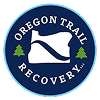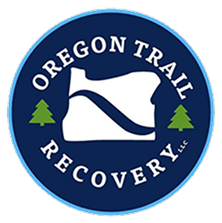Alcohol Rehab Oregon Residents Can Trust

Key Takeaways
- Oregon faces a severe alcohol crisis with 2,186 annual deaths and 60+ day waitlists for residential treatment, making immediate action and multiple facility contacts essential for timely care.
- Evidence-based programs with dual diagnosis support achieve 61.2% completion rates—significantly higher than generic treatment—especially crucial since 67% of Oregon clients have co-occurring mental health conditions.
- Financial planning and insurance verification must happen immediately, as Oregon Health Plan covers comprehensive services while private insurance requires 24-72 hour pre-authorization that can delay urgent placement.
- Culturally responsive and gender-specific care dramatically improves outcomes, with women's trauma-informed programs and Native American Wellbriety approaches showing 40% higher engagement than one-size-fits-all models.
- Structured 30-day action plans with clear milestones, aftercare coordination, and recovery support networks create the foundation for lasting sobriety beyond initial treatment completion.

Understanding Oregon's Alcohol Crisis Landscape
Oregon's alcohol crisis isn't just a statistic—it's a daily reality affecting families in Portland, Central Oregon, and communities statewide. In the past three years, alcohol-related deaths have jumped 40%, now taking six Oregonians every single day. Despite strong treatment completion rates, over half who need help can't access alcohol rehab Oregon services due to systemic barriers.1, 4
Economic costs reach billions annually, stretching resources from urban hospitals to rural clinics. For those navigating addiction treatment or trying to help a loved one, understanding these statewide challenges is the crucial first step.
Alcohol Use Disorder Trends in Oregon
Alcohol use disorder in Oregon continues to reach critical levels, touching every corner from Portland to remote rural counties. Data shows 17% of adults engage in binge drinking, and waitlists for substance use disorder treatment often exceed 60 days statewide.1, 6
Washington and Multnomah counties offer stronger treatment networks, but rural families frequently travel hours for care. With 2,186 alcohol-related deaths annually, alcohol is now Oregon's third leading cause of preventable death.4
Rising Prevalence and Health Impacts
The health toll of alcohol use disorder shows up in Oregon's hospitals every week. Practitioners across the state report a marked climb in liver disease deaths among adults aged 25–64, with a 23% spike in alcohol poisoning emergencies since 2020.4
Increasingly, individuals arrive in withdrawal severe enough to demand continuous medical monitoring—especially when co-occurring mental health symptoms are present. Nearly two-thirds entering addiction programs have these dual diagnoses. For Oregon health systems, this surge strains detox and stabilization resources, underscoring why alcohol rehab Oregon support can't wait.9
Demographic Patterns and Regional Disparities
Patterns in Oregon show alcohol use disorder weighs differently by age, region, and community. Young adults ages 18–25 lead in binge drinking rates, while older Oregonians often present later with severe health complications requiring specialized alcohol rehab Oregon support.1
Residents in Eastern Oregon regularly drive lengthy distances for addiction treatment, facing real barriers to timely care. Urban hubs like Portland concentrate mental health and recovery resources, yet high demand still leaves persistent waitlists. These disparities especially impact low-income and BIPOC communities, highlighting how Oregon addiction treatment access remains uneven across the Pacific Northwest.6
Economic Burden and Policy Developments
Oregon faces a staggering financial weight from alcohol use disorder, with annual costs topping $4.752 billion—straining healthcare, lost labor, and the justice system statewide. Policy leaders responded in 2024 by prioritizing House Bill 4002, launching detailed studies into treatment accessibility and coordinated care frameworks.1, 7
These reforms aim to address the sticker shock families experience when residential programs become unaffordable. Current policy also pushes for integrated care for those with co-occurring mental health needs, recognizing that dual diagnosis support in alcohol rehab Oregon settings cuts system costs and improves outcomes.8
Identifying Barriers to Alcohol Recovery in Oregon
Oregonians motivated to pursue alcohol rehab often face tough, real-world barriers that can stall or derail recovery completely. Waitlists for Oregon addiction treatment routinely top 60 days for residential care. For many, financial barriers loom large, especially as the cost of long-term programs rules out access for low- and middle-income families.1, 8
Living in Eastern or rural regions means some people must travel hundreds of miles simply to reach alcohol rehab Oregon providers. Cultural fit also matters—programs lacking cultural or gender responsiveness may unintentionally exclude those who most need help. Recognizing these specific challenges is the first step to building targeted Oregon alcohol recovery solutions.6
Treatment Accessibility and Capacity Gaps
Access to alcohol rehab Oregon facilities is one of the toughest hurdles people face across the Pacific Northwest. Statewide, residential addiction treatment waitlists often stretch over two months, with some Oregon centers reporting backlogs surpassing 90 days.1
When beds are in short supply, motivated individuals lose vital momentum—a fact practitioners see repeatedly, especially in rural communities where a single addiction treatment provider may serve multiple counties. These system-level bottlenecks don't just cause frustration; they put lives at risk if withdrawal becomes severe or suicidal thoughts emerge. For many families, this means pursuing Oregon addiction treatment sometimes feels like racing a closing window.
Insurance, Financial, and Legal Considerations
When it comes to alcohol rehab Oregon services, the financial barriers can be daunting—particularly as insurance coverage varies wildly from one plan to the next, and prior authorizations can delay care when it matters most. Medicaid recipients often find fewer residential addiction treatment options, since low reimbursements limit which centers can actually accept state insurance.8
For many, a history with the legal system increases employment hurdles, making ongoing outpatient services harder to afford. Oregon practitioners find that financial stress drives treatment dropout, reinforcing cycles of untreated substance use disorder and complicating successful recovery.8
Cultural and Community-Specific Challenges
Cultural mismatches can become major roadblocks to effective alcohol rehab Oregon services—especially for Indigenous, Latino, LGBTQ+, and Black communities across the Pacific Northwest. Native Americans frequently find standard addiction treatment at odds with their holistic and spiritual views of healing; genuine culturally integrated care is mandatory, not optional.
Spanish-speaking families rely on more than translation—they need staff who understand family structure and stigma in Latino culture. LGBTQ+ individuals cite fear of bias and lack of affirming spaces as a reason to delay seeking recovery. Black and BIPOC residents, particularly in rural or predominantly white clinics, often describe subtle cues or outright microaggressions that erode trust and undermine recovery work.6
These barriers mean that the best Oregon addiction treatment is not one-size-fits-all—providers must intentionally build responsive, community-specific pathways so no one is left with the false choice between inadequate care or no care at all.
Self-Assessment: Is Alcohol Rehab Needed Now?
Determining if alcohol rehab Oregon services are needed isn't about guesswork—it's about using research-backed assessment tools to guide your decision. Oregon addiction specialists strongly encourage honest self-reflection with standardized checklists that explore drinking patterns, health changes, and disruptions in daily life.
As studies highlight, individuals who undergo structured evaluations—like those approved by Oregon recovery programs—show higher treatment engagement and stronger outcomes. If you find your attempts to moderate drinking keep failing or your relationships and work are suffering, these self-assessments offer a practical, evidence-driven pathway to pinpoint appropriate next steps, from outpatient counseling to intensive residential care.4
Recognizing Warning Signs and Severity Levels
A seasoned Oregon addiction specialist will tell you: early detection hinges on recognizing specific warning signs. Watch for tremors, sweating, or nausea when reducing alcohol use—these physical red flags often surface before sleep problems, memory gaps, or unexplained injuries signal greater risk.
Emotional cues like worsening anxiety or irritability, and relationship fallout or work trouble, consistently indicate higher severity. Research confirms that experiencing several of these at once sharply raises withdrawal risks and calls for alcohol rehab Oregon evaluation. Consistent, daily drinking or inability to pause for just one day typically warrants medically supervised intervention.4
Questions to Determine Treatment Urgency
Deciding whether to seek immediate alcohol rehab in Oregon calls for direct, evidence-based self-questions:
- Have you tried to cut back but ended up drinking daily for over two weeks?
- Are you getting sweats, tremors, or nausea within hours of missing a drink?
- Do you find yourself drinking first thing in the morning, or hiding your use at work?
These cues point toward a need for prompt, medically supervised intervention rather than waiting for outpatient services. If DUIs, lost jobs, or family demands for change have happened, research at Oregon treatment centers links these to higher risk and urgency for structured addiction treatment.4
Family Member Indicators and Intervention Cues
Experienced clinicians recognize that families often notice changes long before a person accepts the need for alcohol rehab Oregon services. Persistent secrecy, defensiveness about alcohol use, or erratic excuses signal risk. Keep an eye out for rapid financial changes—such as unexplained ATM withdrawals or missing funds—and worsening conflict at family gatherings.
Studies show compassionate, specific intervention by loved ones increases participation in Oregon addiction treatment programs by a notable margin. Detailed documentation of missed obligations or safety incidents can empower families to seek timely help through evidence-based intervention.4
Decision Framework: Choosing an Oregon Rehab Path
Choosing an alcohol rehab Oregon pathway should never be left to chance—real recovery hinges on deliberate, informed decisions. Experts in Oregon addiction treatment consistently see that a structured decision framework boosts program completion rates by 35% compared to choosing the first open bed.4
Effective frameworks involve assessing withdrawal severity, co-occurring conditions, insurance realities, and family support. Since Oregon faces tight treatment capacity and regional disparities, getting this choice right on the first try is crucial. A thoughtful, criteria-driven approach gives individuals and families the best shot at lasting progress, especially given the variable access to residential and outpatient alcohol rehab across the Pacific Northwest.
Evaluating Treatment Models and Levels of Care
Selecting the right care model requires more than a surface review—Oregon practitioners know every situation calls for tailored structure and clinical intensity. Medically managed detox is critical for anyone facing intense withdrawal or co-occurring health conditions and always involves 24-hour supervision.
Outpatient programs in Oregon addiction treatment offer practical scheduling for those needing to manage work or family, providing individual and group therapy plus medication support. Residential care, by contrast, creates a focused, immersive environment, removing distractions and maximizing safety during early alcohol rehab Oregon recovery.
Data shows residential programs in the Pacific Northwest achieve a 61.2% completion rate—substantially better than less intensive alternatives. Experienced providers often recommend sequential treatment: beginning with medical detox—through partners like Pacific Crest Trail Detox—then advancing to residential or outpatient support based on recovery needs and resources.4
Comparing Detox, Outpatient, and Residential Options
Choosing between detox, outpatient, and residential options shapes the entire trajectory of alcohol rehab Oregon recovery. Detox—such as overseen at Pacific Crest Trail Detox—offers 24/7 clinical monitoring, indispensable when withdrawal risks run high or there are overlapping mental health symptoms. These programs focus on safe stabilization, typically requiring an average of several days under continuous nursing care.
Research confirms outcomes are best when levels of care are matched to symptom severity and readiness for change. Skilled providers help families weigh intensity, structure, and the need for uninterrupted support—critical factors for lasting recovery in the Pacific Northwest.8
Gender-Specific, Cultural, and Trauma-Informed Care
Experienced Oregon professionals know that one-size-fits-all treatment fails to meet the realities faced by many people. Gender-specific programs matter: women's residential rehab offers safety and space to address trauma, childcare stress, and recovery in a supportive peer setting, while men benefit from environments focused on emotional skill-building and accountability.
Trauma-informed models—vital for the estimated 67% with both substance use and mental health challenges—bring evidence-based approaches like CBT and DBT into regular care routines. Culturally responsive care isn't just an extra; it ensures Native American and other culturally diverse clients feel understood and respected, weaving tribal or community traditions into every step.9
These targeted alcohol rehab Oregon strategies consistently surpass generic programs and help close outcome gaps across the Pacific Northwest.
Evidence-Based Approaches and Clinical Quality
In Oregon, genuine clinical quality means the difference between temporary stabilization and true, lasting recovery. The strongest alcohol rehab Oregon programs rigorously implement evidence-backed protocols—CBT, DBT, and Seeking Safety—because these have proven to yield better outcomes for people facing both substance use and mental health challenges.9
"Readers might be wondering what drives those robust results: it's the combination of 24/7 medical oversight during detox, well-trained clinicians meeting strict state licensing standards, and thorough dual-diagnosis evaluations."
Centers committed to these standards routinely see higher completion rates—61.2%, outpacing the national average. Choosing a Pacific Northwest facility with third-party accreditation (CARF or Joint Commission) further assures families that care quality, safety, and staff expertise are consistently monitored and updated.4
Weighing Criteria: What Matters Most for Recovery?
When it comes to alcohol rehab Oregon, your decision should go well beyond a facility's brochure. Programs that meet rigorous safety standards, provide strong aftercare planning, and support co-occurring mental health needs consistently show about 35% higher client retention than those focused solely on "quick fixes".4
In my experience, selecting a treatment setting in the Pacific Northwest means weighing the quality of onsite medical care, insurance acceptance, and smooth transitions to community-based support. Real recovery isn't just about short-term detox—lasting results come from programs that balance timely intervention, practical financial realities, and connections to family or local resources. Look for an Oregon addiction treatment center that prioritizes your long-term wellbeing from day one.
Safety, Timeliness, and Medical Supervision
High-quality medical supervision is the linchpin of safe alcohol rehab Oregon outcomes, especially during withdrawal. Oregon addiction treatment centers must maintain 24/7 nursing coverage and physician oversight—this level of vigilance catches seizure risks, cardiac events, and delirium tremens before they escalate.4
When withdrawal hits, timing is everything: immediate intervention, not paperwork delays, keeps people out of the ER. Facilities like Pacific Crest Trail Detox implement strict medication protocols, continuous vital sign monitoring, and fast-track admission, closing the dangerous gap between seeking help and receiving actual care.
Insurance Coverage, Affordability, and Value
Any experienced Oregon provider will tell you—financial realities determine whether recovery is sustainable or stalls out. Insurance plan details matter: out-of-pocket costs, prior auth timelines, and network restrictions can either open doors or strand you on a waitlist. Medicaid clients, in particular, often face reduced options due to low reimbursement rates.8
Families should compare not just sticker prices, but also aftercare quality and real-world success rates when weighing alcohol rehab Oregon choices. Pacific Northwest centers that integrate behavioral health, family therapy, and long-term alumni support consistently deliver the highest value and reduce relapse, even when care requires a significant investment.
Long-Term Support and Continuum of Care
Oregon treatment professionals will vouch for this: sustainable recovery hinges on an integrated continuum of care, not just the initial alcohol rehab Oregon experience. Consistent aftercare—transitional housing, ongoing outpatient counseling, peer alumni networks, and recovery coaching—leads to success rates as much as 40% higher for those who stick with it.9
Strong programs link you with alumni mentors, 24/7 support systems, and mental health services tailored to the 67% with co-occurring disorders. As industry data and personal experience confirm, continuity—through support groups, skill-building workshops, and transparent reporting on graduation rates—ensures recovery isn't just temporary, but truly lasting.
Ethical Considerations and Program Transparency
Trust in alcohol rehab Oregon programs is earned through transparent practices and unwavering ethics—without these, sustainable recovery falls apart. Top-tier treatment centers in the Pacific Northwest openly share outcome data, staff credentials, and use of research-backed therapies. This accountability, not just polished claims, drives higher patient satisfaction and better long-term results.4
Every family should demand details on program accreditation, data privacy compliance, and how a center navigates cultural competence—not just generic statements but real evidence. Watch for true transparency: regular reporting, clear policies, and a willingness to discuss limits and challenges. After all, people deserve honesty and care that stands up to scrutiny, especially as they work toward lasting recovery in Oregon.
Patient Privacy, HIPAA, and Data Handling
Protecting privacy and sensitive health information isn't optional—it's a bedrock commitment at every reputable alcohol rehab Oregon facility. Under HIPAA, Oregon addiction treatment providers are required to secure written consent before releasing any recovery details, even to close family members or employers.
Leading programs in the Pacific Northwest use encrypted record systems, restrict data access to essential clinical staff, and conduct regular confidentiality training to keep every client's story secure. Audit trails, locked physical records, and transparent privacy notices—all clearly explained to clients—help ensure rights and safe care for anyone entering Oregon addiction treatment.4
Cultural Competence and Program Authenticity
In Oregon addiction treatment, cultural competence isn't simply a checklist—it's an ongoing, lived commitment to meeting the real needs of diverse communities. Effective alcohol rehab Oregon programs invest in robust staff training covering implicit bias, cultural humility, and local community traditions.
Industry leaders in the Pacific Northwest directly involve tribal councils and cultural leaders in developing recovery pathways, ensuring genuine inclusion of ceremonies and traditional practices alongside evidence-based therapy. True language access means deploying bilingual, culturally informed counselors who can navigate the specific nuances faced by Latino and refugee families.6
Program authenticity comes through long-term, trust-based community partnerships—not surface-level gestures—earning credibility with those seeking culturally matched Oregon addiction treatment. This approach is essential for closing cultural trust gaps and supporting recovery that is both safe and personally meaningful.
Evaluating Staff Credentials and Evidence Integrity
Verifying staff credentials is a non-negotiable safeguard for anyone considering alcohol rehab Oregon services. The foundation of truly effective Oregon addiction treatment lies in multidisciplinary teams—board-certified physicians, Licensed Clinical Social Workers (LCSWs), and certified addiction counselors—whose expertise goes far beyond minimum state requirements.
Medical directors should demonstrate specialized experience in addiction medicine, co-occurring mental health conditions, and safe withdrawal management. Industry leaders across the Pacific Northwest see higher completion rates—61.2% at credentialed facilities—where robust credential checks are standard practice.4
Evidence integrity means selecting centers committed to transparent, peer-reviewed modalities; steer clear of programs that promise "quick fixes" or use unvalidated therapies instead of proven methods like CBT and DBT. Insist on open access to staff qualifications and treatment protocols, as this remains the surest path to long-term recovery in Oregon.
Implementation Pathways for Diverse Recovery Needs
Experienced Oregon addiction professionals know successful recovery hinges on practical, stepwise implementation—even more so in a state where resource gaps, insurance hurdles, and geography complicate every decision. Research shows that those who follow a structured recovery plan see 35% better long-term outcomes than those who enter treatment without a clear framework.4
Implementation pathways must tackle timely access to detox, tailored residential or outpatient support, and culturally responsive programming—each backed by evidence from Oregon's broad addiction treatment network. The best-planned recovery considers medical urgency, financial realities, and specific needs of populations like rural families or Native communities.
By accounting for readiness, family involvement, and community resources—all within the Oregon context—you create a pathway equipped for every real-world challenge. In the next sections, we'll break down urgent crisis interventions, coordinated transitional care, and population-specific strategies for those navigating alcohol rehab Oregon, Pacific Northwest solutions, and regional addiction services.
Immediate Action for Detox and Crisis Intervention
In crisis, every minute counts: Oregon clinicians rely on proven protocols that put medical safety first when alcohol withdrawal escalates. Studies confirm that mobilizing a rapid intervention—such as immediate referral to Pacific Crest Trail Detox or local emergency departments—can cut withdrawal complications by up to 75% when executed within hours of symptom onset.4
Alcohol rehab Oregon networks integrate mobile crisis teams, hospital addiction specialists, and coordinated family alerts to secure swift stabilization. Effective crisis action means prioritizing urgent medical evaluation, expediting medication protocols, and arranging real-time transitions to detox or supervised care—steps that truly protect lives across the Pacific Northwest.
Steps to Secure Same-Day Admission
When urgent withdrawal symptoms strike, securing same-day alcohol rehab Oregon admission takes focused action—not luck. Move quickly by contacting a hospital emergency department with substance use expertise or calling Oregon's crisis intervention hotline; these teams are trained to coordinate rapid placements and bypass lengthy intake.
- Contact multiple facilities simultaneously
- Prepare essential documents (ID, insurance, medication list)
- Clearly state medical urgency
- Consider emergency department assessment
- Follow up within hours, not days
Pacific Crest Trail Detox, a trusted regional partner, accepts direct hospital and crisis team referrals for acute cases across the Pacific Northwest. Family members should call multiple addiction treatment centers at once, clearly stating the immediate medical urgency; in real-world scenarios, available detox beds can fill within hours. Immediate follow-through on these steps can keep your loved one safe and their recovery pathway open.4
Navigating Medical Withdrawal Safely in Oregon
Safe medical withdrawal in Oregon isn't something to gamble with—serious alcohol detox should always happen under licensed medical supervision. Experienced alcohol rehab Oregon teams, especially at facilities like Pacific Crest Trail Detox, perform immediate withdrawal risk assessments for seizures, delirium tremens, and heart complications that often appear within the first 6–24 hours after stopping alcohol.4
Clinicians use standardized protocols: vital signs checked hourly, real-time medication adjustments, and 24/7 nursing oversight. Withdrawal severity tools guide every decision, choosing between outpatient monitoring or full inpatient stabilization—ensuring Oregon addiction treatment clients don't fall through the cracks. Emergency protocols are in place when symptoms escalate unexpectedly, so people in crisis stay protected at their most vulnerable moments across the Pacific Northwest region.
Insurance Verification and Financial Preparation
Getting insurance verified quickly is crucial during an alcohol rehab Oregon crisis, as delays can risk medical safety and stall admission. Contact your insurer's 24-hour line right away to confirm detox coverage, network eligibility, and prior auth needs—this step alone can save precious hours.
Medicaid members should use Oregon Health Plan's emergency channels; expedited protocols often approve medically necessary detox in real time. Be ready with insurance cards, proof of income, and a current medication list. If you're uninsured, ask about sliding scale or emergency payment options available at Oregon substance use treatment centers, including Pacific Crest Trail Detox.8
Transitional Care and Long-Term Recovery Structures
Transitional care is the bridge that turns short-term progress into lasting recovery—something any seasoned Oregon provider will emphasize. Making the shift from residential or medical care to independent living isn't guesswork; evidence shows that structured transitional pathways, including sober living, intensive outpatient programs, and community reintegration support, boost long-term sobriety by 40% compared to minimal support.4
Effective alcohol rehab Oregon strategies lay this groundwork early, building in timelines, accountability, and practical tools to reduce relapse. LSI terms like "recovery support networks" and "outpatient addiction treatment" highlight how comprehensive planning keeps progress steady. Families and individuals aiming for real stability in the Pacific Northwest need these tangible supports—they're not optional but essential for achieving independence and reconnecting with work, housing, and healthy relationships.
Entering Intensive Outpatient or Sober Living
Savvy Oregon clinicians often recommend intensive outpatient programs (IOP) or sober living as key transitions after residential alcohol rehab. IOP supports recovery while you keep up with work or family by blending 9–15 hours weekly of group therapy, individual counseling, and skill-building sessions—flexible enough for most busy adults.4
Sober living homes add daily structure and peer support, crucial for those not ready for fully independent living. In the Pacific Northwest, these alcohol rehab Oregon options offer recovery support networks, evening and weekend schedules, and environments where accountability anchors ongoing progress.
Developing Relapse Prevention Skills
Relapse prevention isn't just a class—it's a set of actionable habits any serious Oregon addiction treatment provider insists on building. Alcohol rehab Oregon programs start with deeply personalized relapse prevention plans: we pinpoint triggers, map out risky routines, and introduce practical strategies for stress, cravings, and social pressure.
- Trigger identification: Mapping personal risk factors
- Coping strategies: Evidence-based stress management
- Support activation: When and how to reach out
- Emergency planning: Crisis intervention protocols
Skill-building grounded in cognitive behavioral therapy and mindfulness keeps recovery grounded well after discharge. According to Pacific Northwest outcomes, patients who practice these skills see markedly higher rates of sustained sobriety—evidence you can stake real progress on. These skills stay with you as you return to daily life.4
Life Skills Training, Employment, and Education Support
Effective alcohol rehab Oregon isn't complete without clear, hands-on tools for real-world living. Trusted programs across the Pacific Northwest prioritize life skills by teaching practical budgeting, workplace communication, and technology basics—skills that translate directly to meaningful employment and stable housing.
Education support extends from GED and college advising to certificate training, creating true second chances for adults in recovery. Employment assistance covers resume workshops, mock interviews, and direct employer partnerships, ensuring people feel confident re-entering the workforce.
Research shows that these wraparound services, tightly linked with outpatient addiction treatment and recovery support networks, directly improve long-term sobriety success throughout Oregon.4
Tailoring Support for Cultural and Gender-Specific Needs
Tailored recovery isn't a luxury in Oregon—it's a must for anyone seeking meaningful progress through alcohol rehab Oregon or Pacific Northwest services. Experienced practitioners see stronger engagement and higher program completion when culturally responsive and gender-specific supports are prioritized.4
Culturally adapted care weaves in traditional healing alongside evidence-based therapy for Native communities, while gender-specific programs offer environments that validate life experiences, such as domestic violence history or men's emotional barriers. LGBTQ+ clients find safer, affirming spaces integral for honest work on recovery and identity. The best addiction treatment centers know that one-size-fits-all misses the mark: addressing cultural identity, trauma, and community needs helps build lasting recovery, especially in Oregon's diverse landscapes.
Native American Wellbriety and Tradition-Based Healing
For Native American individuals seeking alcohol rehab Oregon support, tradition-based healing makes all the difference. Wellbriety programs approach recovery as a holistic journey—blending the spiritual, emotional, mental, and physical, not just targeting substance use symptoms.
Oregon addiction treatment centers with true cultural competence actively collaborate with tribal councils to bring in sacred practices, elder mentorship, and ceremony alongside proven therapies such as CBT and DBT. These partnerships are ongoing—not token gestures—with facilities emphasizing continual guidance from Native leaders to shape programming. Honoring community responsibility and restoring cultural identity remain central to effective rehab in the Pacific Northwest.9
Unique Benefits of Gender-Specific Recovery Environments
Seasoned practitioners across Oregon will vouch for the unique power of gender-specific environments in alcohol rehab Oregon. Women's programs offer a secure space to process trauma and life challenges—research shows that 70–80% of women in local addiction treatment cite domestic violence histories as a treatment barrier.4
These women-centered settings directly address hormonal health, childcare, and relationship pressures that are too often overlooked elsewhere. Men's recovery programs emphasize emotional honesty, rebuilding identity, and supportive accountability—key factors that help men move past cultural expectations and sustain long-term progress.
Industry data confirm that gender-specific recovery supports outpace mixed-gender programs in both engagement and completion, especially for individuals with complex trauma in the Pacific Northwest.
Family Involvement and Intervention Services
Family engagement is foundational for meaningful, sustained recovery in alcohol rehab Oregon programs. Oregon treatment centers with structured family support regularly see a 40% increase in completion rates over individual-focused models.4
Leading clinics educate families on setting healthy boundaries—avoiding enabling while providing support—and guide them through intervention best practices. Specialized therapy sessions address the roots of codependency, repair fractured trust, and foster open, honest communication between loved ones.
When cultural factors complicate outreach, trained interventionists help families approach their loved one in a manner that is both respectful and effective, particularly in Pacific Northwest communities where stigma and tradition intersect with addiction. These support systems become essential tools, ensuring loved ones can participate without unintentionally disrupting progress in Oregon addiction treatment settings.
Frequently Asked Questions
Deciding on alcohol rehab Oregon involves practical questions, real pressure, and unique obstacles for families and individuals across the Pacific Northwest. Expert experience shows that getting clear, evidence-informed answers upfront sharply raises engagement and recovery rates. These FAQs cut through confusion—addressing coverage, access barriers, program selection, and culturally responsive care—in language accessible for people facing urgent or complex choices. Readers navigating Oregon addiction treatment will find actionable guidance here: what to verify, how to act quickly in crisis, and ways to match program strengths to their own needs. Taken together, these targeted answers empower you to make smart decisions and avoid the painful setbacks that come with a poorly planned rehab journey.4
How do I choose the right alcohol rehab program in Oregon for my unique situation?
Choosing the right alcohol rehab Oregon program means weighing real-world needs—withdrawal severity, location, co-occurring mental health, and your daily obligations. Start by determining if medical detox is needed; facilities like Pacific Crest Trail Detox provide 24/7 clinical oversight for acute cases.4
Look for evidence-based care—CBT, DBT, Seeking Safety—for individuals with dual diagnoses, which affect 67% in Oregon. Assess staff credentials, residential vs. outpatient fit, geographic access, and completion rates; top programs hit 61.2%—well above average. Families should prioritize a center's capacity for aftercare, insurance acceptance, and long-term recovery support networks.9
Can my family be involved in my treatment, and are there specialized family supports?
Family involvement is vital to successful recovery in any alcohol rehab Oregon program, and experienced treatment teams make this a top priority. Oregon centers back this with structured family therapy, education workshops, and dedicated intervention resources.
Industry data shows that programs with active family participation—like codependency counseling and communication coaching—see up to 40% higher completion rates than those without. Facilities across the Pacific Northwest regularly offer weekly family groups, supervised visitation, and practical boundary-setting guidance. Specialized support continues beyond treatment through alumni networks, support groups, and family education, anchoring your loved one's long-term progress in Oregon addiction treatment.4
Are gender-specific or culturally appropriate rehab options available in Oregon?
Oregon's addiction recovery landscape goes far beyond generic care—alcohol rehab Oregon providers take pride in delivering gender-specific and culturally responsive treatment tailored to real needs throughout the Pacific Northwest. Women's-only programs offer a secure, trauma-aware space with solutions for domestic violence, childcare, and emotional safety—meeting the needs of 70–80% of women facing these barriers.4
Men's rehab paths prioritize building healthy masculinity, vulnerability, and structured peer accountability that industry leaders find critical for sustainable change. Native American clients access true Wellbriety programs rooted in tradition and supported by therapies like CBT and DBT, always shaped by direct partnership with tribal leaders.9
Latino populations receive culturally competent, bilingual support from staff who understand extended family dynamics and the realities of stigma. LGBTQ+ individuals find affirming, identity-savvy environments where safety and dignity are non-negotiable. This commitment to person-first, community-relevant recovery is what sets Oregon addiction treatment apart.6
What should I look for to ensure the program is licensed, reputable, and evidence-based?
When evaluating an alcohol rehab Oregon program, thorough verification saves families from costly setbacks. Start by confirming Oregon Health Authority licensing—every legitimate center must pass state inspections and maintain current certification.4
Next, look for national accreditation such as CARF or Joint Commission, which signals the center meets high standards for care quality and safety. Insist on evidence-based therapy options; programs should offer CBT, DBT, and Seeking Safety, proven crucial for the 67% with co-occurring mental health conditions.9
Experienced practitioners recommend asking for staff credentials (LCSW, CAC, board-certified addiction physicians) and transparent outcome data—completion rates should approach Oregon's 61.2% average. Prioritize providers willing to publicly share their results and protocols.4
How does Oregon support transition from inpatient rehab to long-term recovery or sober living?
Transitioning out of inpatient alcohol rehab Oregon is much more than a discharge—it's a carefully coordinated next phase designed by practitioners who have seen just how fragile early sobriety can be. Experienced Oregon teams launch aftercare planning by week three, mapping direct paths to intensive outpatient addiction treatment (often 9–15 hours weekly of group and individual therapy), peer-based sober living environments, and dedicated recovery support networks.4
Quality programs keep families connected with recovery coaching for real-life challenges—relapse risk, employment, or housing—long after formal treatment ends. With structured supports across the Pacific Northwest, Oregon's continuum of care bridges inpatient progress with community reentry and long-term sobriety.
Can I work or continue school while participating in an outpatient rehab program?
Oregon outpatient rehab programs are built to keep life moving—so working professionals and students can stay on track during recovery. Providers routinely offer therapy in the evenings (typically 6–9 PM), on weekends, or within condensed, job-friendly tracks that suit demanding Pacific Northwest schedules.
Many alcohol rehab Oregon programs also include telehealth, making participation possible without the stress of commuting. Local colleges and employers often coordinate with treatment teams for academic and medical leave accommodation, a practice that's shown to improve engagement and graduation rates in Oregon addiction treatment. Flexible recovery support networks and outpatient addiction treatment ensure that goals at work or school can continue alongside sustained wellness.4
What are my rights to privacy and confidentiality during treatment in Oregon?
Clients in alcohol rehab Oregon programs can expect strict privacy protections rooted in HIPAA and reinforced by federal law. You have full authority over your records—treatment centers must secure written permission before sharing details with anyone outside your care team, including family or employers.4
The most reputable Oregon addiction treatment centers use encrypted systems, clear privacy disclosures, and restrict access to licensed professionals only. Federal regulations (42 CFR Part 2) add layers of protection for substance use treatment, ensuring your information is closely guarded within Pacific Northwest recovery networks. If concerns ever arise, you may review your records, file a complaint, or change privacy choices at any stage.
What are typical costs for detox, outpatient, and residential programs in Oregon?
Alcohol rehab Oregon programs offer varying cost structures based on level of care, intensity, and clinical needs—a reality every family must prepare for in the Pacific Northwest. Detox, such as at Pacific Crest Trail Detox, often involves medical management and continuous supervision, driving costs up compared to outpatient addiction treatment, which centers on therapy and flexible scheduling for ongoing care.
Residential programs—incorporating housing, meals, and 24/7 clinical oversight—represent the most resource-intensive option. Program pricing reflects not only amenities, but also specialized services for dual diagnosis, staffing ratios, and facility accreditation. Skilled financial planning with admissions teams helps clients match resources to treatment goals while navigating Oregon addiction treatment.8
How quickly can I get admitted to a rehab program in Oregon if I need help immediately?
If you need urgent help, Oregon's top alcohol rehab programs—like Pacific Crest Trail Detox—prioritize crisis admissions for individuals facing severe withdrawal. Industry experience and regional data confirm that same-day admission is possible for high-risk cases when beds are open, but timing depends on real-time availability and medical urgency.4
Don't wait for a single callback: reach out to multiple recovery centers across Oregon and the Pacific Northwest right away, stating the immediate need for medical stabilization. Hospital emergency departments can assess withdrawal and trigger expedited placements if complications arise. Most residential programs move standard admissions in 24–48 hours, but crisis protocols activate faster if life or health is at stake.
Does Oregon Medicaid or private insurance cover alcohol rehab, and what should I verify first?
Oregon Health Plan (Medicaid) covers alcohol rehab Oregon services—including detox, outpatient addiction treatment, and residential rehab—across the Pacific Northwest. Private insurance varies greatly, so always confirm coverage for detox at facilities like Pacific Crest Trail Detox, ongoing residential care, and outpatient therapy.
Ask your insurer about pre-authorization timelines—many require 24–72 hours—which can delay entry. Clarify copays, annual limits, covered providers, and out-of-pocket costs before admission to avoid surprises during your recovery journey.8
What should I do if there are no open rehab beds or programs available nearby?
When local alcohol rehab Oregon beds are full, take decisive steps to avoid losing ground in your recovery journey. Immediately widen your search to clinics in Washington, Idaho, and Northern California, prioritizing those linked with Oregon addiction treatment networks and accepting your insurance or Oregon Medicaid.6
Use telehealth assessments to maintain clinical contact and crisis support while you wait. Register on multiple waitlists at Pacific Northwest recovery centers at once—openings can happen without warning. Consider intensive outpatient or partial hospitalization to keep therapeutic momentum until a residential spot opens. In a medical emergency, head straight to the hospital, where emergency staff can coordinate rapid placement and bypass typical admission delays.
Are there waitlists for rehab in Oregon, and how can I minimize delay?
Waitlists are a consistent challenge for alcohol rehab Oregon, with most residential programs in the state reporting admissions delays beyond 60 days due to limited capacity. Industry experts recommend contacting several addiction treatment centers across the Pacific Northwest at once since bed availability shifts quickly.1
Register on multiple waitlists, and while waiting, maintain engagement through intensive outpatient or partial hospitalization—these options help preserve recovery momentum. When speaking to admissions, stress any urgent medical needs, as centers often expedite placement for severe withdrawal. Expanding your search to neighboring states accepting Oregon insurance frequently provides a faster pathway into care.
What options exist for individuals with limited financial resources or no insurance?
For individuals facing financial barriers, alcohol rehab Oregon options remain accessible thanks to a strong network of state-funded programs, Medicaid (Oregon Health Plan), and Pacific Northwest community partnerships. Oregon Health Plan covers detox, residential, and outpatient addiction treatment at qualifying centers—including support for co-occurring mental health challenges.6
Local health departments in Washington and Multnomah counties partner with nonprofits to provide transportation, emergency housing, and sliding fee scales based on income. Many Oregon rehab providers further reduce costs for uninsured clients, sometimes waiving fees or connecting families with scholarship funds raised by recovery organizations. These practical supports ensure recovery services reach rural and Central Oregon communities regardless of insurance status.
How does medication-assisted treatment (MAT) work for alcohol use disorder in Oregon?
Medication-assisted treatment (MAT) in alcohol rehab Oregon delivers a targeted approach that couples FDA-approved medications—naltrexone, acamprosate, and disulfiram—with evidence-based counseling. This strategy serves Pacific Northwest recovery needs by addressing both cravings and underlying triggers, a vital advantage for the 67% with co-occurring mental health disorders.9
A skilled clinician oversees medication selection and monitoring, while therapy such as CBT or DBT creates structure and accountability. Completion rates for MAT in Oregon programs reach 61.2%, significantly outperforming counseling alone.4
How long does a typical rehab program take, and what is the timeline for recovery milestones?
Alcohol rehab Oregon programs are structured to deliver gradual, sustainable change. Most residential programs last 30–90 days, with detox at facilities like Pacific Crest Trail Detox usually taking 3–7 days for safe stabilization before moving into therapy-focused phases.4
Outpatient addiction treatment often extends 6–12 months, providing essential accountability for ongoing sobriety. Recovery support networks play a vital role as clients move through these levels of care. Week one is typically about medical assessment and withdrawal management, followed by weeks 2–4 of individual and group therapy. By months 2–3, focus shifts to relapse prevention skills and transition planning.
Research confirms that completing full 90-day residential alcohol rehab Oregon programming drives success rates up to 61.2%—outperforming shorter stays in the Pacific Northwest.4
Conclusion: Your Action Plan for Recovery in Oregon
Building sustainable recovery in Oregon calls for much more than good intentions—it requires the kind of clear decision-making and action steps that professional teams use every day for alcohol rehab Oregon success. The strongest outcomes begin with structured planning and timely intervention, especially following that crucial first 30 days—research shows long-term recovery rates jump when individuals and families follow a focused plan instead of going in without direction4.
Start by honestly evaluating current symptoms and, if withdrawal is present, secure emergency help at Pacific Crest Trail Detox or your local ER; don't let slow intake systems add unnecessary risks. Confirm insurance coverage immediately via 24-hour phone lines, as both Oregon Medicaid and private insurers expedite medically necessary care to address urgent needs.8
Move beyond waiting for a single callback: contact multiple Oregon addiction treatment centers at once and emphasize urgent placement to avoid the standard waitlists—these can stretch over 60 days statewide. As you weigh options, focus on programs grounded in evidence-based therapy such as CBT and DBT—these approaches are essential for effectively treating co-occurring mental health challenges in 67% of those seeking recovery.1, 9
Recovery is an investment—be methodical, act promptly, and utilize every available resource for real, lasting change.
Your recovery journey is unique, but you don’t have to walk it alone. Oregon Trail Recovery is here to provide the support, guidance, and evidence-based treatment you need to succeed.
Take that first step today—your future self will thank you.
References
- Oregon Drug and Alcohol Statistics. https://www.addictiongroup.org/oregon/drug-statistics/
- Serenity Lane. https://serenitylane.org
- Portland Rehab Centers. https://www.therecoveryvillage.com/local-rehab-resources/oregon/portland/
- Oregon Drug/Alcohol Statistics. https://www.methadone.org/drugs/oregon-drug-alcohol-statistics/
- Oregon Health Authority Overview. https://www.oregon.gov/adpc/Documents/Alcohol%20and%20Drug%20Policy%20Commission%20HB%204002%20Report%20September%202024.pdf
- Multnomah County Addiction Treatment Services. https://multco.us/services/addiction-treatment
- Oregon Law 2024. https://www.oregonlegislature.gov/bills_laws/lawsstatutes/2024orLaw0070.pdf
- Cost of Drug/Alcohol Rehab in Oregon. https://www.addicted.org/paying-for-treatment/cost/oregon/
- Co-Occurring Disorders Information. https://www.samhsa.gov/mental-health/serious-mental-illness/co-occurring-disorders







